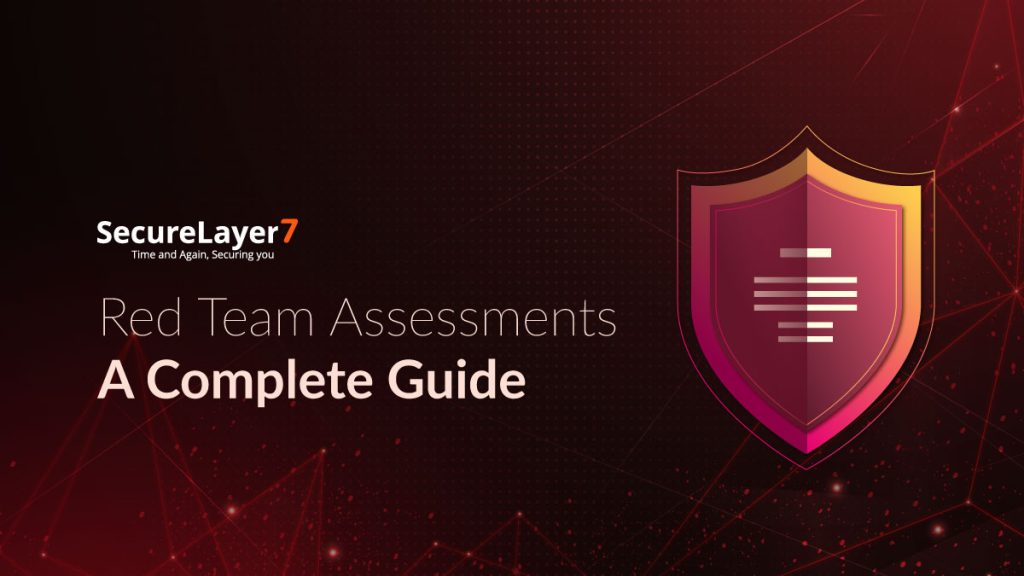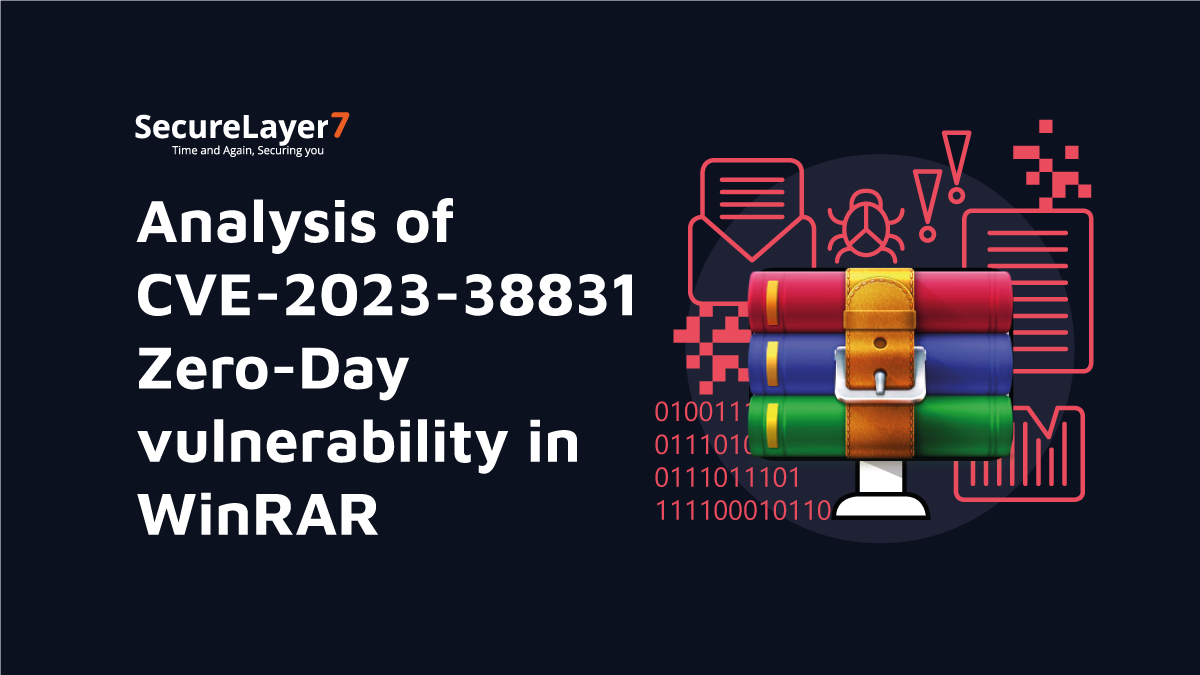
Analysis of CVE-2023-38831 Zero-Day vulnerability in WinRAR
September 24, 2023
The Most Comprehensive Guide To Choose a Pentest Partner
October 9, 2023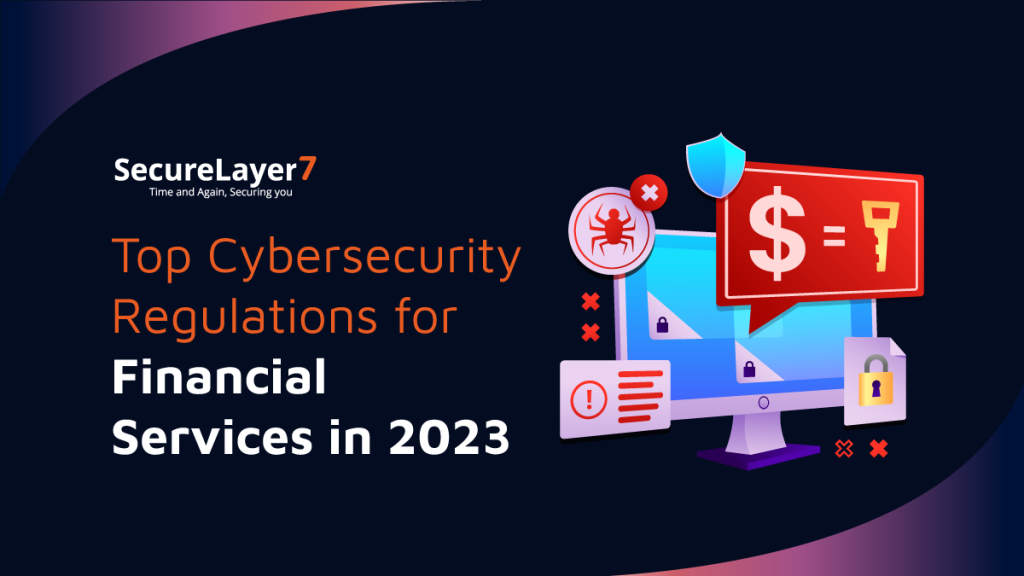
In today’s digital age, the financial industry relies heavily on technology for seamless operations and customer interactions. However, this digital transformation also brings increased cybersecurity risks.
Financial institutions handle sensitive data, making them prime targets for cyber threats and data breaches.
To address these challenges, regulatory bodies worldwide have implemented stringent cybersecurity regulations.
In this blog, we’ll explore the top 15 cybersecurity regulations financial service providers must comply with in some prominent geographies.
Let’s dive into the world of cybersecurity in financial services and understand how compliance with these regulations is paramount in today’s tech-driven world.
What is financial cybersecurity compliance?
Financial cybersecurity compliance refers to adhering to specific rules and standards aimed at safeguarding the security and integrity of digital systems and data within financial institutions.
It involves implementing technical and organizational measures to mitigate cyber threats and protect sensitive information, ensuring trust, and meeting regulatory requirements.
Key components include risk assessment, data protection, access controls, incident response, and regular audits to maintain a secure financial ecosystem.
Compliance is crucial in the face of growing cyber risks to preserve financial stability and customer confidence.
What role does cybersecurity play in financial services companies
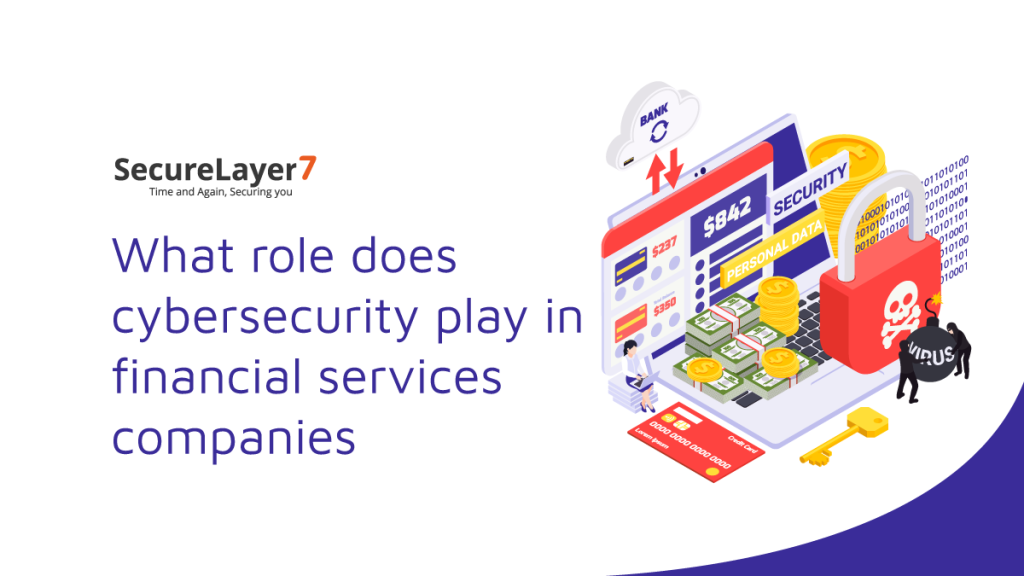
In the contemporary landscape of financial services, cybersecurity is no longer an option but an absolute necessity.
Financial institutions handle a vast array of sensitive data, including customer financial records, personal information, and transaction details.
The integration of technology in financial operations has streamlined processes and enhanced user experiences, but it has also attracted malicious cyber threats.
Let us have a look at some of the crucial reasons why cybersecurity is needed in financial services companies.
1. Protection of customer data
Financial services companies deal with extensive customer data, from personal identification details to financial histories.
A single data breach can result in severe financial loss and irreparable damage to customer trust.
Implementing robust cybersecurity measures is vital to safeguarding this sensitive information and maintaining the confidentiality and privacy of customers.
2. Mitigating financial losses
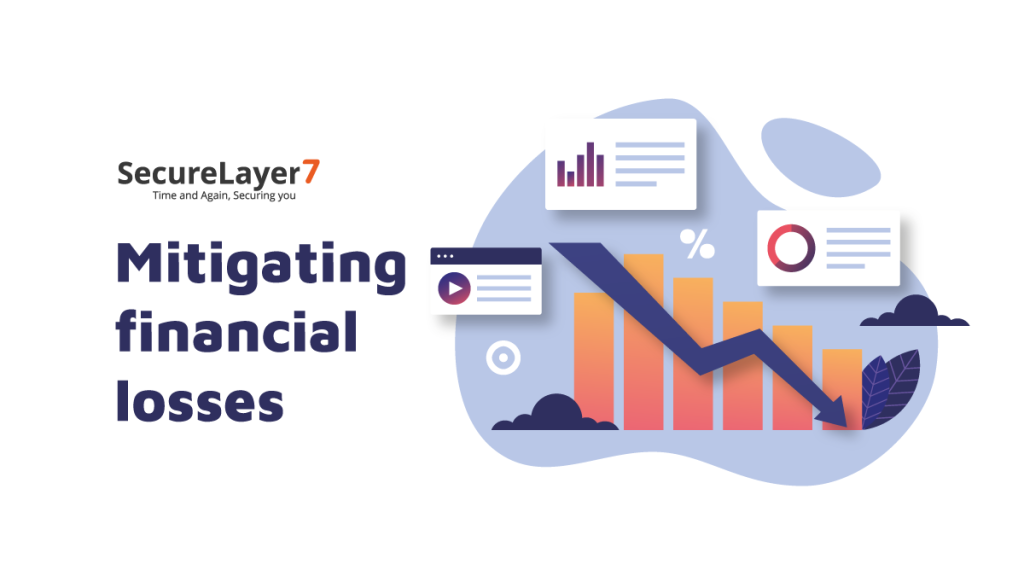
Cyber attacks can lead to significant financial losses for financial institutions. Cybercriminals exploit vulnerabilities to carry out fraudulent transactions, initiate unauthorized fund transfers, or disrupt services, causing substantial financial harm.
Cybersecurity practices help detect and prevent such threats, reducing the risk of monetary losses.
3. Preserving reputation and trust
A breach in cybersecurity not only impacts financial stability but also tarnishes the reputation of financial institutions.
Customer trust, once lost, is challenging to regain. By prioritizing cybersecurity, companies demonstrate their commitment to protecting their customers’ interests and building long-term trust.
4. Ensuring regulatory compliance
Financial services companies are subject to various cybersecurity regulations, such as GLBA, GDPR, and PCI DSS.
Compliance with these regulations is crucial to avoid penalties and legal liabilities. Robust cybersecurity framework ensures adherence to these standards and helps organizations stay on the right side of the law.
5. Preventing disruptions in services
Cyber attacks can disrupt financial operations, leading to service outages and customer dissatisfaction.
An effective cybersecurity strategy includes measures to ensure business continuity, enabling companies to recover quickly from potential disruptions.
Most prominent cybersecurity regulations for financial services
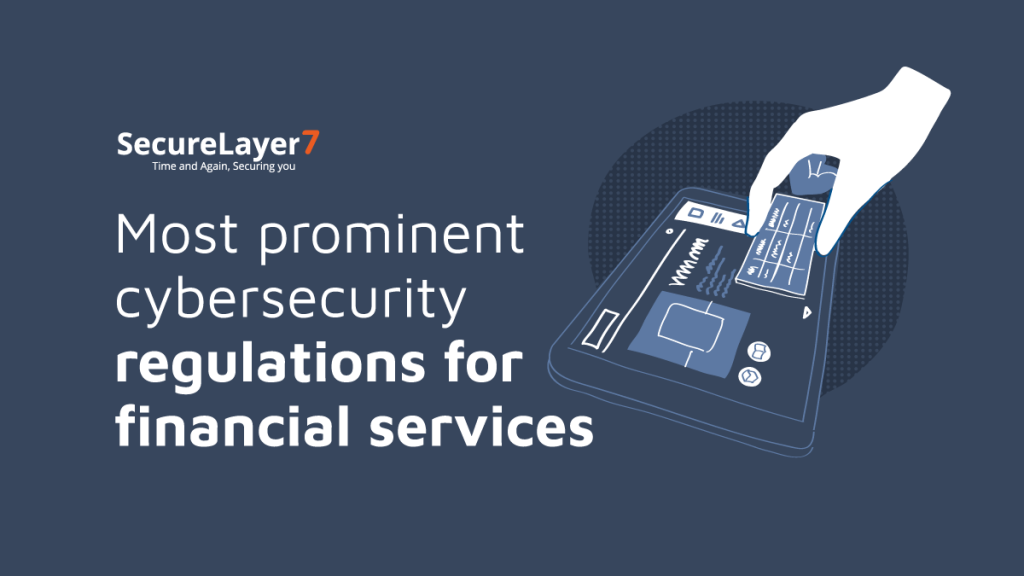
Let us dive deep into cybersecurity regulations and have a detailed look at them one by one along with the powerful countries they come from.
Global Regulation
Financial services operate in a globalized world, necessitating compliance with cybersecurity regulations that transcend national boundaries.
These global regulations provide comprehensive guidelines for financial institutions to enhance their cybersecurity measures, ensuring a consistent and robust approach to data protection and risk management across international markets.
Payment Card Industry Data Security Standard (PCI DSS)
The Payment Card Industry Data Security Standard (PCI DSS) is a globally recognized cybersecurity regulation that applies to organizations involved in processing credit card transactions.
Established by major credit card companies, including Visa, MasterCard, American Express, Discover, and JCB, PCI DSS aims to secure cardholder data and protect against fraud and data breaches.
PCI DSS compliance is not only a legal obligation but also a demonstration of an organization’s commitment to safeguarding customer data and maintaining trust with stakeholders.
Adherence to this global regulation is critical for financial services companies involved in card transactions, ensuring robust data protection measures and reducing the risk of security breaches.
To comply with the Payment Card Industry Data Security Standard (PCI DSS), organizations that handle credit card transactions must implement a set of specific security measures and practices.
The requirements for PCI DSS compliance are categorized into twelve high-level requirements, each consisting of several sub-requirements.
Here is an overview of what is needed to achieve PCI DSS compliance:
Build and Maintain a Secure Network:
- Install and maintain a firewall configuration to protect cardholder data.
- Do not use vendor-supplied default passwords or security parameters.
Protect Cardholder Data:
- Protect stored cardholder data through encryption and strong access controls.
- Mask cardholder data when displayed (show only the last four digits).
Maintain a Vulnerability Management Program:
- Use and regularly update anti-virus software.
- Develop and maintain secure systems and applications.
Implement Strong Access Control Measures:
- Restrict access to cardholder data on a need-to-know basis.
- Assign a unique ID to each person with computer access and limit privileges.
Regularly Monitor and Test Networks:
- Track and monitor all access to network resources and cardholder data.
- Regularly test security systems and processes.
Maintain an Information Security Policy:
- Establish and maintain a security policy that addresses information security for employees and contractors.
Cybersecurity regulations in India
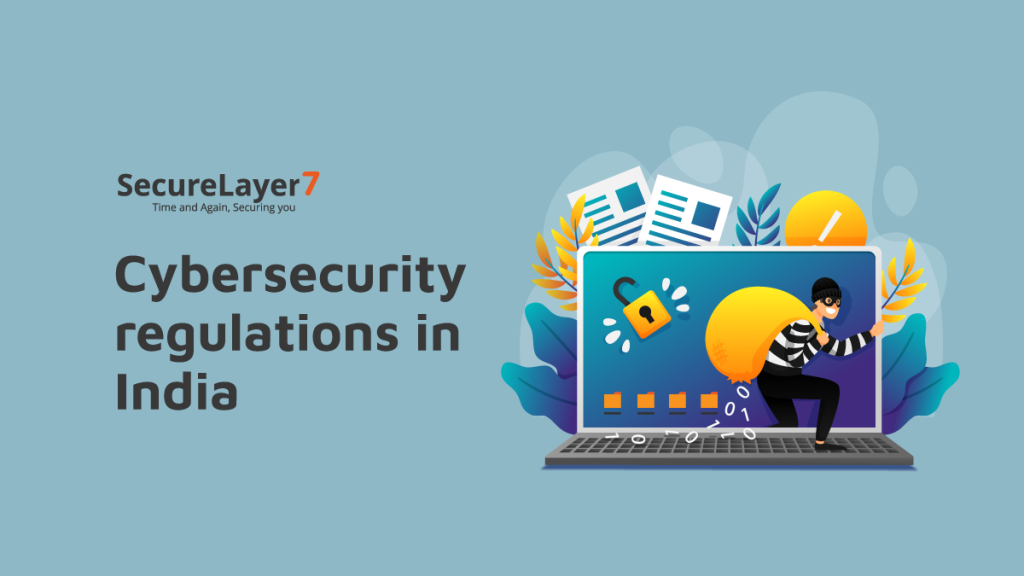
India’s rapidly growing digital landscape have led to an increased emphasis on cybersecurity to protect sensitive data and ensure the safe functioning of its financial services sector.
The country has established a comprehensive framework of cybersecurity regulations to address evolving cyber threats and maintain the security and privacy of digital transactions and customer information.
Below are some of the key cybersecurity regulations in India:
1. The Information Technology Act of 2000
India’s landmark cybersecurity law, the Information Technology Act of 2000, was a pioneering step in safeguarding the digital realm.
Enacted by the Parliament of India and overseen by CERT-In, it laid the foundation for data protection policies, governed cybercrime, and provided security measures for e-governance, e-banking, e-commerce, and more.
While not a singular cybersecurity law, the IT Act, along with sector-specific regulations, ensures cybersecurity standards across various sectors. It establishes a legal framework for critical information infrastructure protection.
Section 43A of the Act mandates “reasonable security practices and procedures” for Indian businesses to protect sensitive data from compromise. Section 72A addresses the unauthorized disclosure of personal data, imposing penalties for offenders.
2. Indian SPDI Rules, 2011 for Reasonable Security Practices
The IS/ISO/IEC 27001 regulations hold a prominent status in the Indian SPDI Rules, 2011, being recognized as international standards.
By implementing the IS/ISO/IEC 27001 standards, companies can effectively enhance their data security protocols and safeguard sensitive information. These regulations also grant individuals the right to rectify their data and impose controls on its disclosure, transfer, and overall security.
It’s important to note that these rules exclusively pertain to corporate entities and do not hold them accountable for verifying the authenticity of sensitive personal data, which includes sensitive details like sexual orientation, medical records, biometric information, and passwords.
3. National Cyber Security Policy, 2013
The National Cyber Security Policy of 2013, introduced by the Department of Electronics and Information Technology (DeitY), aimed to fortify India’s cyber ecosystem.
It focused on creating a skilled IT workforce, ensuring cyber resilience, safeguarding infrastructure, and fostering efficient incident response.
Encouraging robust cybersecurity policies, the policy aimed to minimize cyber threats’ impact through institutional strengthening.
Overall, it sought to create a secure and trusted digital environment in India, reinforcing the nation’s cybersecurity readiness.
4. IT Rules, 2021
The Indian Ministry of Electronics and Information Technology (MeitY) introduced the Information Technology (Guidelines for Intermediaries and Digital Media Ethics Code) Rules, 2021, replacing the previous IT Rules, 2011.
The amendments aim to empower users to seek compensation for grievances and hold organizations accountable for data protection.
They distinguish between social media intermediaries based on user numbers, imposing stricter personal data protection on larger ones.
The rules mandate transparency, requiring intermediaries to inform users about regulations, privacy policies, and appoint a grievance officer for user complaints.
These developments strengthen digital media ethics and align India’s cybersecurity regulations with the evolving digital landscape.
5. National Cyber Security Strategy 2020
In response to the ever-evolving cybersecurity landscape, the Indian government crafted the National Cyber Security Strategy of 2020, a much-anticipated plan aimed at bolstering the nation’s digital defenses.
The core focus of the strategy lies in enhancing cybersecurity audit quality, empowering organizations to conduct thorough assessments of their cybersecurity architecture and knowledge.
The policy anticipates a rise in security standards upheld by cyber auditors, prompting organizations to proactively reinforce their security programs.
As the plan continues to take shape, the vision of a more secure and resilient cyber environment for India remains at the forefront.
The National Cyber Security Strategy of 2020 endeavors to pave the way for a safer digital future, safeguarding critical infrastructure and fostering a robust cybersecurity culture across the nation.
6. KYC (Know Your Customer)
KYC (Know Your Customer) processes, mandated by the RBI (Reserve Bank of India), are essential global standards used by financial institutions to enhance data security and combat fraud.
To comply with regulatory requirements, businesses implement various cybersecurity measures such as identity verification through questionnaires and pre-screening methods, AI-based document verification, biometric authentication, and maintaining customer databases.
Adherence to KYC regulations assures customers of robust compliance management
and anti-fraud measures, fostering trust and ensuring secure payment processing for Indian merchants while avoiding potential monetary penalties for non-compliance.
Cybersecurity regulations in the United States
US has a robust framework of cybersecurity regulations designed to protect sensitive data, maintain the integrity of financial systems, and safeguard consumer privacy.
These regulations encompass various sectors, from financial services to healthcare and consumer privacy. Let’s explore each regulation in detail:
1. Sarbanes-Oxley (SOX)
The Sarbanes-Oxley Act of 2002, commonly known as SOX, is a significant piece of legislation enacted by the United States Congress to enhance corporate governance, financial reporting transparency, and accountability.
The act was introduced in response to several high-profile corporate accounting scandals that eroded public trust in the financial markets.
SOX imposes strict regulations on publicly traded companies and their auditors, aiming to prevent fraudulent accounting practices and ensure accurate financial reporting.
The act includes provisions that mandate the establishment of internal controls and audit procedures, as well as the disclosure of financial information to the public.
With SOX, companies are required to demonstrate the effectiveness of their internal control measures, ensuring the accuracy and reliability of financial statements.
The act also holds corporate executives accountable for the accuracy of financial reporting and imposes penalties for non-compliance or fraudulent practices.
2. Bank Secrecy Act (BSA)
The Bank Secrecy Act (BSA) aims to combat money laundering and other financial crimes. It requires financial institutions to establish anti-money laundering (AML) programs, conduct customer due diligence (CDD), and monitor and report suspicious activities.
BSA compliance involves robust cybersecurity measures to prevent data breaches and unauthorised access to customer information.
3. Gramm-Leach-Bliley Act (GLBA)
The Gramm-Leach-Bliley Act (GLBA) governs the handling of consumer financial information by financial institutions.
GLBA mandates the development and implementation of comprehensive information security programs to protect sensitive data, including customer names, account numbers, and social security numbers.
4. Federal Financial Institutions Examination Council (FFIEC)
The Federal Financial Institutions Examination Council (FFIEC) issues guidelines for financial institutions, including banks and credit unions, to assess and manage cybersecurity risks.
FFIEC’s Cybersecurity Assessment Tool helps institutions evaluate their cybersecurity posture and develop effective risk mitigation strategies.
5. FTC Safeguards Rule
The Federal Trade Commission (FTC) Safeguards Rule requires financial institutions to develop and implement security programs to protect their customer information.
The rule includes measures to assess and address risks, establish safeguards, and regularly monitor and update security programs.
6. National Institute of Standards and Technology (NIST) Cybersecurity Framework
The NIST Cybersecurity Framework provides a comprehensive set of guidelines for organizations to manage and improve their cybersecurity posture.
It includes a risk-based approach to identify, protect, detect, respond to, and recover from cybersecurity incidents.
7. Health Insurance Portability and Accountability Act (HIPAA)
HIPAA focuses on protecting the privacy and security of patients’ protected health information (PHI).
It requires healthcare organizations to implement administrative, physical, and technical safeguards to ensure the confidentiality of PHI and prevent data breaches.
8. New York — NYDFS Part 500
The New York Department of Financial Services (NYDFS) Part 500 regulation applies to financial institutions operating in New York.
It requires organizations to establish comprehensive cybersecurity programs and report cybersecurity events to regulatory authorities.
9. California — California Consumer Privacy Act (CCPA)
The California Consumer Privacy Act (CCPA) grants California residents certain rights regarding their personal information.
It requires businesses to disclose data collection and sharing practices, provide opt-out options, and maintain the security of consumers’ personal data.
These cybersecurity regulations in the US collectively aim to enhance data protection, promote transparency, and bolster the cybersecurity resilience of organizations operating in various sectors.
Compliance with these regulations is critical in safeguarding sensitive information and maintaining consumer trust in the digital age.
Cybersecurity Regulations in the EU
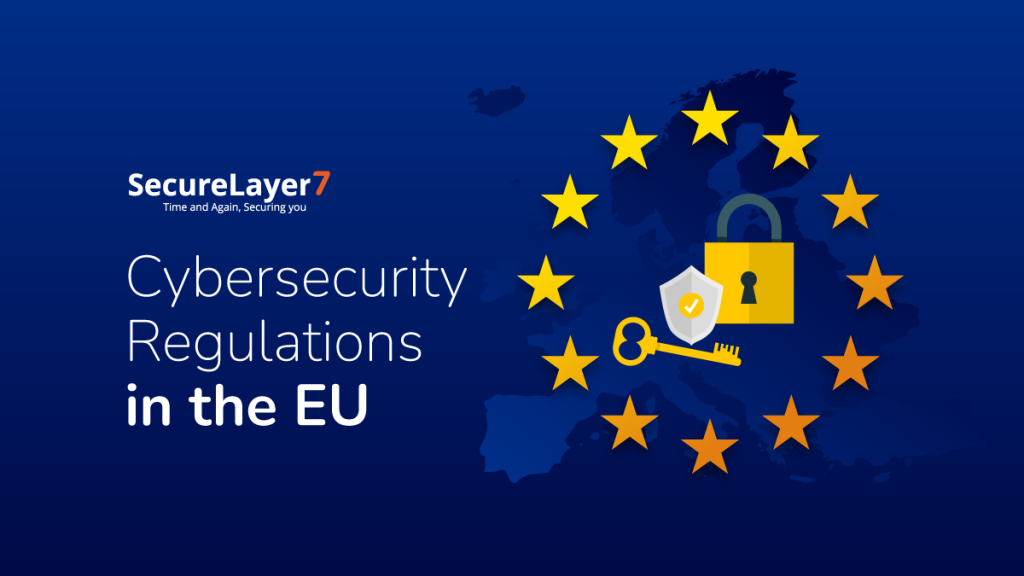
In the vast and diverse landscape of the European Union (EU), cybersecurity regulations play a crucial role in safeguarding data privacy and ensuring secure financial transactions.
Let’s take a closer look at two key cybersecurity regulations in the EU:
1. General Data Protection Regulation (GDPR)
GDPR is like the guardian of our personal data, ensuring it’s handled with utmost care and respect. It gives us, the users, more control over our data and how it’s used by organizations.
Companies operating within the EU or processing data of EU residents must comply with GDPR’s strict data protection standards.
With GDPR in place, we can rest assured that our sensitive information stays in safe hands and out of reach from cyber threats.
2. Payment Services Directive 2 (PSD2)
PSD2 is the trailblazer that revolutionizes how we make payments. It aims to enhance security, transparency, and competition in the payment services sector.
One of its star features is the requirement for strong customer authentication (SCA), making online transactions safer by adding an extra layer of protection.
With PSD2 on the scene, our digital wallets can stay secure, and we can shop online with peace of mind.
Cybersecurity regulations in the UK
In the United Kingdom (UK), cybersecurity regulations are instrumental in building trust, protecting data, and ensuring the integrity of information systems.
Here are two important cybersecurity regulations in the UK:
1. General Data Protection Regulation (GDPR)
In sync with the EU, the UK has embraced GDPR with open arms. This regulation empowers individuals with more control over their personal data and holds organizations accountable for its proper handling.
Companies in the UK must adhere to GDPR’s stringent data protection principles, giving us the assurance that our data is in good hands, and our privacy rights are respected.
2. ISO/IEC 27001
ISO/IEC 27001 is like the gold standard in cybersecurity management. It sets the bar high for organizations seeking to demonstrate their commitment to information security.
By obtaining ISO/IEC 27001 certification, companies in the UK showcase their robust approach to protecting sensitive data and mitigating cyber risks.
It’s a seal of approval that tells us our data is being treated with the utmost care and security.
By adhering to these regulations, organizations demonstrate their dedication to safeguarding our information, inspiring trust, and bolstering cybersecurity resilience across the region.
Singapore
Singapore, the thriving hub of Southeast Asia, takes cybersecurity seriously to ensure a secure digital ecosystem. Let’s delve into a key cybersecurity regulation in Singapore:
Monetary Authority of Singapore (MAS) Notices on Cyber Hygiene
MAS, the guardian of Singapore’s financial stability, has issued Notices on Cyber Hygiene to fortify the resilience of financial institutions.
These notices set out essential cybersecurity measures and best practices for banks and financial service providers.
By following these guidelines, Singapore’s financial sector stays shielded against cyber threats, ensuring the safety of critical financial data and transactions.
Canada
In the Great White North, Canada upholds strong cybersecurity regulations to safeguard its citizens’ data and bolster digital security. One notable cybersecurity regulation is Bill C-11.
Bill C-11
Bill C-11 is Canada’s upcoming federal law, the Consumer Privacy Protection Act (CPPA). This legislation seeks to modernize and strengthen Canada’s privacy framework by giving individuals more control over their personal data.
Organizations will need to be more transparent about data practices and obtain consent for data collection and usage. With Bill C-11, Canadians can trust that their privacy rights are respected and their data is protected.
Summing Up
Cybersecurity regulations serve as vital safeguards in our digital world, ensuring data privacy, financial integrity, and trust.
From the US to the EU, Singapore to Canada, these regulations empower individuals, protect sensitive information, and fortify digital defences.
Adhering to these guidelines not only ensures compliance but also fosters a safer and more secure digital future.
By respecting data privacy and embracing robust cybersecurity measures, we create a resilient ecosystem that inspires confidence and enables seamless interactions in the ever-evolving realm of technology.
Secure your financial future with SecureLayer7’s cutting-edge cybersecurity solutions!
In the fast-paced world of finance, data security and regulatory compliance are paramount for success.
Don’t let cyber threats and complex regulations hold you back. SecureLayer7 is here to empower your financial institution with top-notch cybersecurity solutions that ensure your data stays safe and your compliance efforts are seamless.
Why Choose SecureLayer7?
Tailored for Finance: SecureLayer7 understands the unique challenges of the financial sector. Our solutions are custom-built to protect your sensitive data and align with the specific regulations that govern your industry.
Holistic Approach: We take a comprehensive approach to cybersecurity, encompassing data security, risk management, and compliance in one unified platform. With SecureLayer7, you can tackle all your cybersecurity needs under one roof.
Stay Ahead of Threats: Our cutting-edge technology and real-time monitoring keep you ahead of cyber threats. Detect and respond to potential intrusions swiftly, minimizing any potential damage.
Simplified Compliance: Navigating complex regulatory landscapes can be overwhelming. SecureLayer7 simplifies compliance by automating and streamlining the process, ensuring you meet all regulatory requirements effortlessly.
Take Charge of Your Cybersecurity Future!
With SecureLayer7 as your trusted partner, you can focus on growing your financial business while we safeguard your data and compliance needs. Don’t let cyber risks and compliance challenges hinder your progress. Secure your financial future with SecureLayer7’s top-tier cybersecurity solutions today!
Contact us now to schedule a consultation with our cybersecurity experts and discover how SecureLayer7 can help you stay protected, compliant, and ahead of the game in the competitive financial industry. Take the first step towards securing your financial future with SecureLayer7!


